Section 3: LITHUANIA TODAY
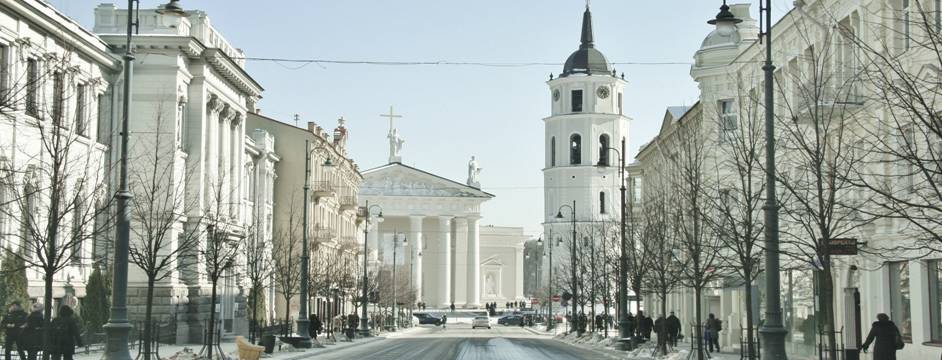

THE VOICE OF INTERNATIONAL LITHUANIA
|
VilNews has its own Google archive! Type a word in the above search box to find any article.
You can also follow us on Facebook. We have two different pages. Click to open and join.
|
Sun, 25th September, 2011 - (2) Comment
Small towns in today’s Lithuania:
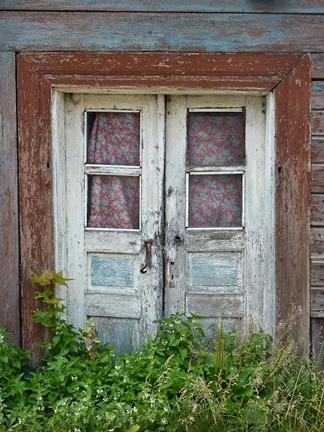
Text: Aage Myhre, VilNews Editor-in-Chief
Every third year or so I go to visit some acquaintances in one of Lithuania's small towns. A few days ago it was again time to see these exceptionally friendly, nice people, and my little family and I were as always very much welcome guests at the home of our small-town friends when we arrived at the gate in front of their house.
When we last were there, in 2007, this was a family and a society that seemed to be in peaceful harmony. A little sleepy, yet idyllic atmosphere prevailed in both the home and the small town at that time.
No longer so.
“Criminal gangs appear to be about to take over in such a way that we, the law-abiding citizens no longer feel safe neither in the streets nor in our homes. Last night, for example, we were out at a restaurant just ten minutes walk from our house. When it was time to go home, it was already dark outside, and as the situation here has become so bad over the past couple of years we dared not walk, we felt we had no other choice than to take a taxi the few hundred meters back to our home. "
She speaks softly, sad and with deep seriousness in her voice as she explains the situation to us, this gentle woman who has lived in this town all her lifetime. Here she gave birth to and raised her now grown children who have given her great grandchildren whom she talks about with great pride in her voice, still expressing deep concerns on how it will be for them to experience an environment like this during their years of childhood and youth.
Tue, 6th September, 2011 - (2) Comment
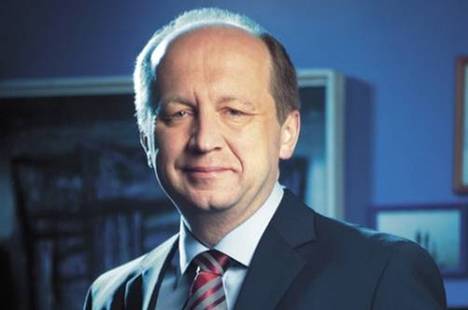
Lithuania’s Prime Minister, Andrius Kubilius.
Arrogance and ignorance are not particularly positive characteristics of anyone, and I understand it well if some of our VilNews' readers, who see that I use these words together with a picture of our Prime Minister, predict that I will now be criticising him. So let me hurry to say that these two words are meant for all questionable behaviours seen performed by our governing forces since 1990, not solely for Mr. Kubilius.
I must admit that I over the past 20 years have seen a few Lithuanian leaders whose arrogance and belief in their own excellence in some cases have prevented progression and good development for Lithuania. Still today I miss leaders who are good at listening to their own Lithuanian people, wherever in the world they may live, and I miss leaders able to inspire and be unifying figures and good examples for the nation they are appointed to serve. Leaders able to lead, not only manage.
I have also very much been missing to see our leaders seek advice from other countries and its own diasporas; to learn from mistakes and experiences these nations went through during the years when Lithuania was still under Soviet rule. Instead, time after time, we have seen Lithuanian leaders trying to reinvent the wheel.
PM Kubilius' profound measures for savings and cuts during the very serious financial crisis Lithuania still experiences, is for me an example of just that. In my opinion, the type of medicine he has been using is to compare to putting the brakes on for a car that already stands still, or closing the tap when the well is already empty.
Countries in Scandinavia and North-Western Europe have the background and resources to make cuts. Lithuania and other Eastern European countries are, after the long Soviet-era economic mismanagement, not in such a fortunate situation. Here most of the resources should have been spent on finding new fuel for the car and fresh spring water for the well.
Being a Norwegian, I believe Norway and the other Scandinavian countries would have been willing to stretch to great lengths to provide help and advice for the crisis-hit Lithuania and the two other Baltic States. But they had to be asked.
Our Lithuanian leaders should refrain from arrogance and avoid ignorance by seeking advice where good help and advice is to find, domestic and internationally. Can they do that, there is every reason to foresee a bright future for this nation.
The Lithuanian people deserve exactly that. They have suffered enough.
The airport comparison

Vilnius Airport’s terminal building from 1954 was built during Stalin’s last years.
It still remains the airport’s main face towards Vilnius City.
To make my above point more understandable, I will in the following compare post-war Lithuania to Vilnius Airport. Why? Well, they have more in common than you may think; metaphorically, symbolically and representatively for what has been going on here from WWII till today.
Sat, 20th August, 2011 - (0) Comment

Plans to do business in Lithuania? It's like navigating
a boat in shallow water full of reefs.
"What you, who are born in the West, see when you come to Lithuania, are people who look like you, talk like you (those who speak Western languages) and are quite much alike you in many other aspects. But the reality is that we who have grown up in the Soviet Union or Eastern Europe have a totally different mentality than you. Even those Lithuanians who fled to the West during the war do not understand what the Soviet era has done with the mindset of us who were forced to grow up under the yoke of communism."
A Lithuanian friend told me this a few days ago. The talk began after he had expressed some surprise at how naive and gullible we from the West are when we come to Lithuania.
"You think that a word is a word, that a deal is a deal. You think that things here are going straight as in the West. You believe that what you hear is what is said, and you trust that people you meet really want and mean to do what is good, honest and correct.”
“Therefore, it doesn’t take much before you open up your cards and often reveal business secrets and other things that you should never have disclosed without first having secured your situation with contracts and local supporters, i.e. lawyers. We Lithuanians are experts in taking advantage of such situations, and we never cease to wonder how gullible people from the West often are. Even within international companies and organisations I am sometimes surprised to see how unaware western professionals are about what goes on behind their backs when they come here," said my friend.
I asked him if this mentality also means that people here do not care much about their own country, doing good for the society in addition to earning a living for themselves. "Only to a small degree," replied my friend. "It is such a difficult situation for most here that there is no additional capacity or desire to also care about the nation. Even our leading politicians do not. Most of them are much more concerned with their own interests than of the nation, and they are normally bad role models for the rest of us. So why should we do more than them?"
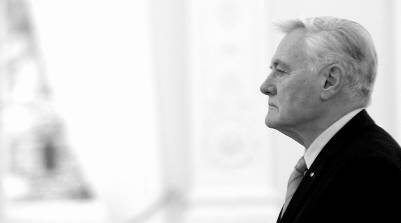
"I was born in this country. I fought for this country. I gave everything I
could, both while I lived here and after I was forced to flee to the United
States. I moved back here when Lithuania was again free, and have since
continued to do my best for this country, including through my years as
President. Yet I must admit that I feel like an outsider in my own country."
The sadness in the voice of former President Valdas Adamkus was
unmistakable as he stood and looked towards the Vilnius city through
the windows of his Presidential Palace.
I cannot fully agree with my friend. Yes, there are differences, but also so many similarities and common grounds to build on. But his statements made me think about a conversation I had with the former Lithuanian President, Valdas Adamkus, a few years ago. He was then well into his second and last presidential term, and we had a long and good conversation at his office in the Presidential Palace in Vilnius. When the conversation was over we went together out into the corridor outside his office, where the windows are facing the Cathedral and the central area of Vilnius.
My last question to the President, in that corridor, was about how close he felt he had come to the Lithuanian people after he returned from the United States in the early 1990s. This is what he answered:
"You know, Aage, I was born in this country. I fought for this country. I gave everything I could, both while I lived here and after I was forced to flee to the United States at the end of World War II. I moved back here when Lithuania again was free, and I have since continued to do my best for this nation, including through my years as President. Yet I must admit that I feel like an outsider in my own country."
The sadness in the voice of former President Valdas Adamkus was unmistakable as he stood and looked towards the Vilnius city centre through the windows of his Presidential Palace.
Aage Myhre, Editor-in-Chief
aage.myhre@VilNews.com
Thu, 28th July, 2011 - (1) Comment
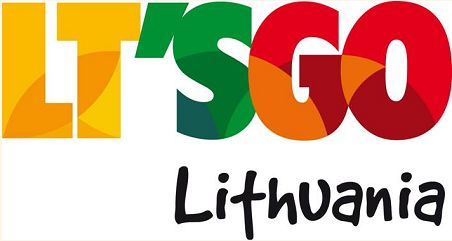
After the period of the development-retarding Soviet occupation and a frantic/ chaotic search for systemic solutions in the 1988-2010 freedom-seeking, Lithuania badly needs a fresh and original approach to its socioeconomic system and its due place in the new global economy. This fresh approach, the innovative Great Narrative of Lithuania (GNL) is a qualitatively new global presentation of Lithuania; GNL will use modern economic and management theories and will be rooted in the original and unique overall Lithuanian experience assessed against the background of the world’s (esp. European) experience.
With stagflation, gyrating financial imbalances, recurring asset price bubbles, primarily in the advanced economies but also in emerging markets, there is a rapidly growing need to learn from past crises and attempts at transformations in order to boost the necessary confidence (find a new hope) and to avert or minimize new crises using the most modern knowledge management approaches, innovate in business/economic models and critical areas of institutional/systemic solutions. This is of importance globally and specifically for Lithuania as it moves away from its attempts at traditional comparative and competitive advantages to “softer” aspects of more advanced development involving new sources of those advantages and new institutions/systemic solutions that probably will be a creative blend of the Scandinavian, some Anglo-Saxon (e.g. Canada), and even Asian models (e.g. Singapore, China).
Valdas Samonis
Institute for New Economic Thinking, USA
SEMI Online, Globally
Mon, 25th July, 2011 - (1) Comment

|
Klaipeda was substantially covered in our VilNews editions |
|
Sunday 17 July |
||
|
KLAIPĖDA – the jewel in the amber crown |
Friedricho Pasažas – the new wonder of Klaipėda |
|
|
History of Klaipėda
|
Mare Suebicum |
|
|
Monday 18 July |
||
|
KLAIPĖDA MAYOR:
|
Radisson Blu Hotel, Klaipėda:
|
|
|
Tuesday 19 July |
||
|
Western Shipyard – from Soviet colossus to European greatness
|
Lido Marine – a Norwegian success story in Klaipėda
|
|
|
Wednesday 20 July |
||
|
KLAIPĖDA FREE ECONOMIC ZONE:
|
Next time you eat bacalao* in Spain or Italy |
|
|
Thursday 21 July |
||
|
Klaipedos Nafta has one of the most up-to-date oil terminals in Europe
|
The port of Klaipeda
|
|
|
WITH BOTH OIL AND LNG IN KLAIPĖDA:
|
||
|
Friday 22 July |
||
|
MEMEL CITY – A NEW 'CITY' AT KLAIPEDA'S SEA FRONT
|
4 trucks full of books every week
|
|
|
Saturday 23 July |
||
|
JAMES ANDREW CLARKE:
Click here to read the article
|
KLAIPĖDA SCIENCE And TECHNOLOGY PARK:
|
|
|
Sunday 24 July |
||
|
From Suriname to Klaipėda International Business Club
|
Klaipėda – a pioneer municipality in combating violence against women
|
|
Sun, 24th July, 2011 - (2) Comment
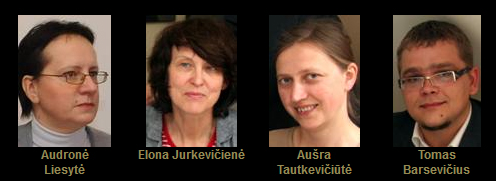
The Klaipeda Municipality tem planning the new crisis centre for women:
Ms. Audronė Liesytė, Head of Social Care Division
Ms. Elona Jurkevičienė, Head of Project Division
Ms. Aušra Tautkevičiūtė, Chief Specialist of Construction and Infrastructure Development Division
Mr. Tomas Barsevičius, Chief Specialist of Project Management Subdivision, Project Division
One of the biggest problems that Lithuania faces today is violence against women. Statistics claims that 63% of all women in Lithuania suffered from physical and/or psychological violence, whereas world average is 33%. In my interview with Klaipeda’s Mayor Vytautas Grubliauskas earlier this week, I asked him if he thought Klaipeda could be a good example for other Lithuanian municipalities with regards to this very severe problem.
The mayor answered:
“Thanks to funds from Espersen Foundation, Klaipėda becomes a pioneer in this social blind spot. What we will see with rise of this building, however, is not a problem solution, only a shelter for severe societal problems. Although the shelter is extremely needed, Klaipėda will never be an example if violence will persist. Therefore I see immediate need for social evolution towards extermination of violence against women in general. For that we need awareness campaigns and education from early school age. Only with such package of measures I will be able to call Klaipėda as good example for other municipalities.”
Lithuania's port city has for years had a women's shelter for women, but has now taken a huge step forward and is already well underway with the planning of what is probably going to be Lithuania's most modern and advanced crisis centre for women. The new centre is expected ready by 2012.
Sat, 23rd July, 2011 - (1) Comment
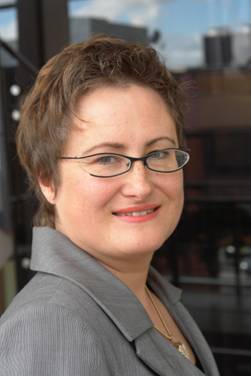
Klaipeda Science and Technology Park
Director Roma Stubrienė
“By opening the door of the Klaipeda Science and Technology Park (KSTP) we intended to gather under one roof enthusiasts of successful development from Klaipeda city and all western Lithuania: progressive thinking students full of innovative ideas, post-graduates, entrepreneurs and their enterprises in order to enhance the collaboration between science, industry and other branches of economy as well as development of high technology sectors. We hope to interest the visitors of our internet site in our activity and encourage them to collaborate in development of an innovative environment and innovation based economy in the Klaipeda Region.”
- Roma Stubrienė
The Klaipeda Science and technology Park (KSTP) is a mediator between science and business structures. Its task is to enhance communication between science and businesses, increase the level of entrepreneurship and promote development of knowledge based economy in the Klaipeda Region.
The Klaipeda County is one of the leaders of Lithuanian economy; it is among the three most powerful counties according to the GDP per capita, material and direct foreign investments as well as the average salary. More than 80% of the gross domestic product of the region is produced in Klaipeda City. Considering the potential and perspective of the region, it is necessary to ensure successful competitiveness by enhancing innovation culture, organizing transfer of knowledge and technologies and synergetic business communication.
Gathering under the roof of KSTP enthusiasts of successful development from Klaipeda City and all western Lithuania, progressive thinking students full of innovative ideas, post-graduates, entrepreneurs and their enterprises will help to enhance collaboration between science, industry and other branches of economy as well as development of high technology sectors. The KSTP plays an important role in creation and promotion of the city and region image and distinction and it also sets innovation culture traditions in the region. Therefore, the activity of the Park ensures social connection of science and business institutions: creates the necessary environment for knowledge and technology exchange, sets favorable conditions to provide high value added services, and promotes the scientific and industrial potential of the region.
Read more at www.kmtp.lt…
Fri, 22nd July, 2011 - (7) Comment
|
MEMEL CITY – A NEW 'CITY' AT KLAIPEDA'S SEA FRONT "A completely new face of Lithuania"- Mindaugas Žilinskas, Chairman of the Board, Memelio miestas |
|
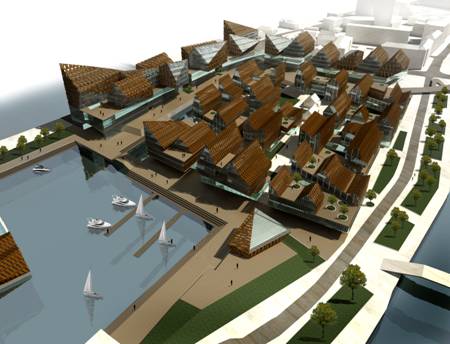
Memel City will be an immensely attractive seafront development in the Klaipeda harbour, at the Dane River mouth.
Memel City is a new 'city' planned built in the port of Klaipeda at the very sea front. A fantastic, amazing project that well might change the face of Lithuania!
The area where the new 'city' will be built is still a part of the port area. Here are still cranes and old production halls, and there are still ships at the dock. But in a few years this will be the most exciting town imaginable in this country. It is even likely to be Lithuania's only seafront project ever.
Memel City will be located at the mouth of the Dane river. On the other bank is planned another project with some similarities to Memel City, though in a smaller scale. The projects will be tied together by a new bridge over the river, and they will together constitute a truly unique development for Klaipeda and Lithuania.
Memel City will include several new quarters with apartments, business, offices, shops, restaurants, a hotel, night clubs, SPA, casino and much more. The quays and the closest sea area will be available for small boats and yachts.
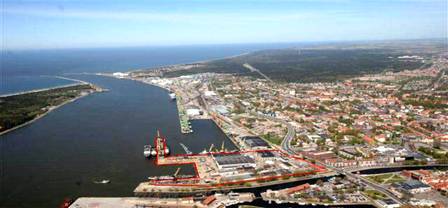
Fri, 22nd July, 2011 - (1) Comment
Four trucks full of books, on around 1.000 pallets, leave the PRINT IN printing plant every week to Norway, Sweden, Finland, Denmark, Poland and local deliveries to Lithuania.
The PRINT IT printing plant in Gargzdai, a few kilometres south of Klaipeda city, is a Norwegian owned Lithuanian softcover book printer. They provide their clients with solutions for all sorts of printing needs at very compatible prices compared to Scandinavia and Western Europe, still without compromising on quality!
PRINT IT was established in Lithuania 18 May 2005, by Norwegian investors and experienced professionals from the Norwegian printing industry. The decision to operate out of Klaipeda, Lithuania, was based on location and low production costs. The location also provides excellent access to the key markets in Europe.
Since the start-up in 2005, PRINT IT has with a yearly production of 25 million books become a force to be reckoned within the European printing industry. The company has 70 employees and an EUR 12 million annual turnover. The printing machines, binders and the rest of the machine park, are all efficient and modern.
With exports accounting for more than 96% of the total production, PRINT IT is the largest pocket book producer in the Baltics.
PRINT IT is now expanding and is in the process of installing an additional web fed book press in order to produce large format soft cover. The new machinery will be fully operational by August. The new press will provide the plant with capacity to produce soft cover with height up to 21.5 cm. Combined with their two existing web fed book presses, the plant will now be able to fully utilize its bookbinding capacity.
Four trucks fully loaded with wisdom leaves Klaipeda every week. Soon there will be more...
Thu, 21st July, 2011 - (4) Comment
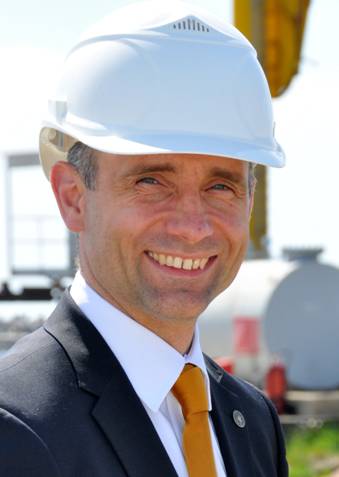
Rokas Masiulis, General Manager of Klaipedos Nafta
Rokas Masiulis interviewed by Aage Myhre
aage.myhre@VilNews.com
Rokas Masiulis have huge challenges, both behind and in front of him. As head of the giant oil terminal belonging to Klaipedos Nafta, he has had good success, and has this year also delivered remarkable economic performance for the company that in essence is owned by the Lithuanian State. Now it's planning and development of the increasingly well-publicized LNG terminal that lies in front of him. The president and the government have decided that the LNG venture will be a project of national concern, and as I’m in the process of writing this interview, the President herself is on a visit to Mr. Masiulis to ensure that the planning of the terminal proceeds 'by leaps and bounds'.
In the middle of the storm's eye Lithuania's oil-director still found time to answer my questions. His capacity is compelling...
Thu, 21st July, 2011 - (2) Comment

The Kiaules Nugara (Pig’s back) island in the southern part of the Klaipeda port, at the border between the port and the Curonian Lagoon (to the left in the above illustration) is the most likely place to build Lithuania’s planned LNG terminal. This means that it will regularly sail large LNG tankers through the narrow strait between Klaipeda city and Neringa (which is now designated as one of the country’s national parks). How risky can it be to get a gas terminal and such a heavy sea traffic close to the big city that Klaipeda after all is? What about the explosion and fire risk? What about emissions and other forms of pollution? Is the water, beaches and fisheries in the Curonian Lagoon at risk? May Neringa and Klaipeda city be at risk?
Thu, 21st July, 2011 - (2) Comment

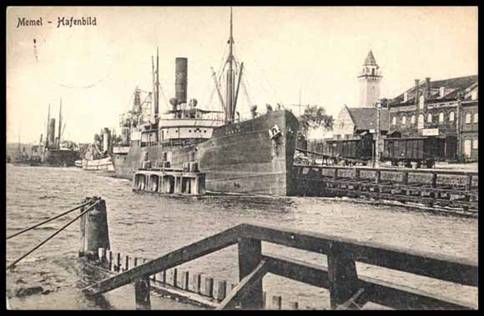
The history of Klaipeda seaport started already the summer of year 1252 when the Curonian bishop and the vice-regent of Livonian Order signed the agreement about Klaipeda. This agreement was approved by the ruler of Lithuania, Mindaugas (one year before he was crowned King of Lithuania). Following this agreement Klaipeda Castle was built. In the small port neighboring the castle, vessels of Lubeck and Bremen merchants used to moor.
In the middle of the 16th century Klaipeda rivals, the inhabitants of Danzig, overloaded the Dane port with stones (!), therefore till 1820 only small vessels could call the port.
In 1743 the first timber trade office was founded in Klaipeda, and the port became the most famous timber trading port in the Baltic Sea.
The chronicle of 1797 mentions that Klaipeda port consists of the Dane river port and a big water basin in the strait of the Curonian Lagoon. Timber was handled in the port, accommodating more than 300 vessels at a time.
Wed, 20th July, 2011 - (2) Comment
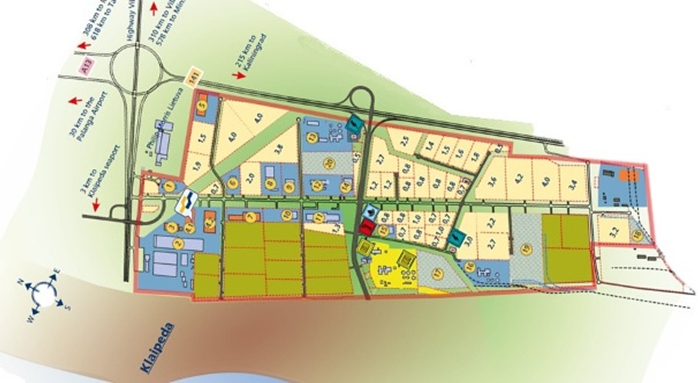
The Klaipėda Free Economic Zone (Klaipėda FEZ) was established in 1996 and opened officially in 2002. FEZ offers tax incentives to qualified investors that invest at least 1 million euros. In 2008, due to overcrowding the zone was expanded from 205 hectares (510 acres) to 412 hectares (1,020 acres) of developed land. As of March 2008, before expansion, FEZ had 22 investors: seven were operating, one just finished construction, six were under construction, and others in development stage. Web page: www.fez.lt E-Mail: info@fez.lt
Tue, 19th July, 2011 - (2) Comment
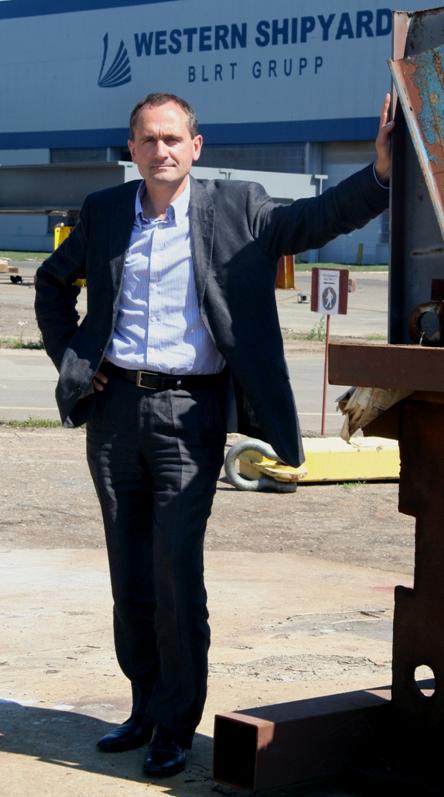
Western Shipyard’s General Director Arnoldas Šileika started to work as foreman
in the yard 22 years ago, when it still was under Soviet rule. He has been head of this
huge company since 2001, leading the transformation from Soviet times and thinking.
Western Shipyard’s General Director Arnoldas Šileika interviewed by Aage Myhre
aage.myhre@VilNews.com
I've been here before. I recall this as I pass through the guard building and the strict access control point that is the entrance to this huge shipyard furthest to the west in the Klaipeda port area. And well within the shipbuilding area, memories start flowing. I'm starting to remember details from my visit here 20 years ago, when the shipyard still was very 'semi-Soviet'.
I see the tremendously long, Soviet-like buildings, and walk along the one that is supposed to be the administrative headquarter. I finally get to the building’s end, closest to the sea, with a feeling of having gone back in time. But this feeling gradually fades as I get inside, climb the stairs to the 4th floor and walk into the corridors which are now colourful and nicely renovated, with pictures of new, modern ships and platforms on the walls. The pictures of Lenin and other communist symbols have miraculously disappeared since my last visit…
The secretaries in front of the general director's office still sit in the same reception room as by then. But now the dark, gloomy desktops are replaced with light, modern furniture, and the Soviet weightlifter-ladies have been replaced with beautiful and inviting young women, even speaking English very nicely…
And, believe it or not, the door to the general director's office is wide open! This time, there is no secretary humbly approaching the boss in his highness’ fortress behind armoured doors to ask if he graciously could accept to receive the visitor. No, now it’s the boss himself who comes smilingly out of the huge director-room, with an outstretched hand and a jovial 'welcome to our Western Shipyard! "
Hmm ... Times have obviously changed...
Mon, 18th July, 2011 - (6) Comment
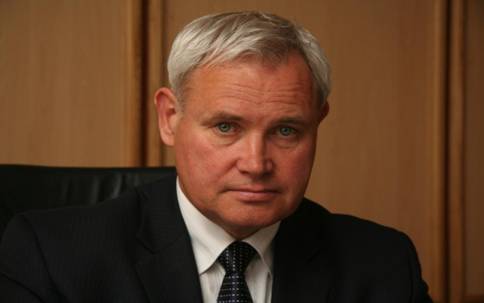
Mayor of Klaipeda, Vytautas Grubliauskas
The Mayor of Klaipeda interviewed by Aage Myhre
aage.myhre@VilNews.com
Congratulations with the post as Mayor of Klaipeda! Anything you can share with our readers about the municipal and mayor elections where the outcome was that you took over Klaipeda's main chair this spring?
Thank you. Klaipėda was always a stable and trustful city. Recent elections proved that those adjectives are true. Democratic transition in Kaunas and Vilnius was indecisive until last night or even during the mayoral voting session. Meanwhile here in Klaipeda a prospective coalition started work planning for a 4 year term already after the municipal election night. This stability brings a lot more clarity for citizens and administration.
What can you tell our readers about today's situation and the outlooks for the economy of Klaipeda?
Recession in Klaipeda lasted much shorter than in other cities. Thus it's still present in real estate sector, we bounced quickly back in other sectors. We kept quite stable consumer demand due to Klaipeda's large workforce share (appr. 40%) employed in harbour related activities that hardly experienced recession. Positive economical outlook for local companies continued city economy running in difficult times. For future, I see much unused capacity in harbour and free economical zone activities that are already best performers in whole Baltics. On the other hand I watch with uncertainty demographic decline as most difficult macroeconomic challenge for municipal budget and consumer demand. We have to cope with a shrinking city scenario.
Greeting to sister cities by mayor of Klaipėda Vytautas Grubliauskas.
Mon, 18th July, 2011 - (3) Comment

Radisson Blu Hotel, Klaipėda:
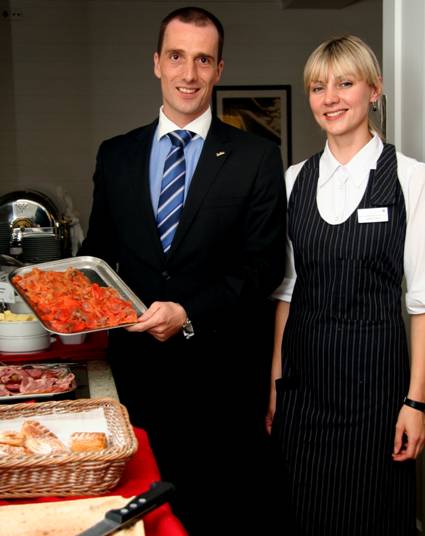
General Manager Tobias Ammon is rightly proud of the breakfast buffet that
Radisson Blu Hotel offers its guests. Here with waitress Kristina.
The Radisson Blu Hotel in Klaipeda has just celebrated its first ten years as the only truly international luxury hotel at Lithuania’s beautiful seacoast. Two months ago the hotel got a new General Manager, German Tobias Ammon (35), and I am sitting down with him in the hotel’s breakfast room this early July morning to let him explain to you, dear readers, why you should visit Klaipeda and his hotel – this summer as well as when the autumn winds already make the endless Baltic Sea waves powerfully roll in towards the port city shores.
“I must admit that I had to ask where Klaipeda is when I was offered this position, but I was astonished to see what a nice area this is, when I first came here,” tells the young manager, who now has moved here with wife and little daughter. He and his little family are now in full swing “testing Klaipeda as travel destination”, and they are using their bicycles to do exactly that!
“This area is really ideal for bikes, and we are now using our weekends to bike to the fantastic beaches in the outskirts of the city, riding through beautiful coastal pine tree forests, villages and over the wavy, green landscapes that characterise this area,” he tells.
To my question why people should come to visit this seaside town and district, Tobias answers: “First of all because of the experience. Klaipeda is still kind of a genuine, untouched place, and there is a lot to discover for those who haven’t been to this part of Lithuania or Europe. The genuine Old Town in Hanseatic style, the river, the yacht harbour, the beautiful nature, the smell of sea, combined with a long and interesting history starting in the 13th Century. In addition, Klaipeda is centrally located between the resort areas of Neringa and Palanga, The ferryboat trip over to Neringa (the Curonian Spit) takes only a few minutes. The Palanga resort town and international airport is only a 20 minutes drive from here. So this is really an ideal, central location for those who want to experience the beautiful Lithuanian seashores.”
VilNews e-magazine is published in Vilnius, Lithuania. Editor-in-Chief: Mr. Aage Myhre. Inquires to the editors: editor@VilNews.com.
Code of Ethics: See Section 2 – about VilNews. VilNews is not responsible for content on external links/web pages.
HOW TO ADVERTISE IN VILNEWS.
All content is copyrighted © 2011. UAB ‘VilNews’.